It’s the buzzword that can transform skin. Let MOJEH guide you through the products, myths and retinol rules to ensure you get the complexion you’ve been promised
Retinol is hailed by dermatologists as the gold standard in anti-ageing, and with good reason. Proven to increase cell turnover, unclog pores and boost collagen, it has multiple benefits. Yet many of us still don’t know which formula is best for our skin type or how to use the powerful vitamin correctly. The word retinol has become a blanket term for a handful of vitamin A derivatives which, when it comes to softening lines and improving skin tone and firmness, dermatologists agree are the most hard-working anti-ageing ingredients at our disposal.
View this post on Instagram
“It regulates sebum, it gives you a strong barrier so that skin is better hydrated, it boosts collagen and it regulates cell turnover,” shares dermatologist Dr Nazanin Saedi. Use it long enough and, over time, it won’t break any of its promises: “From a skin perspective, retinoids work at a deep cellular level, where they help to boost collagen and elastin production, reduce cellular ageing and pore congestion, and regulate sebum production,” shares founder of Decree skincare Dr Anita Sturnham. “Vitamin A cannot be made by the body and needs to be supplied through our diet and by feeding our skin topically, through skincare.”
There are three main types of retinol to look for. In descending potency, there is retinoic acid, which is only available on prescription, usually in strengths between 0.025% and 0.1%. Then there’s the widely used retinol, and finally retinyl palmitate. Our skin cells have retinoic acid receptors, so in simple terms, if you apply retinoic acid it gets straight to work. Retinol, however, first has to be converted by enzymes in the skin into retinoic acid, which makes it slightly less potent, although it will still do the same job given time. Retinyl palmitate needs to go through more pathways to be converted in the skin, so it loses further potency along the way. Each of these options will have a similar outcome as the weeks go by, and although retinoic acid may get you there faster, it also increases the risk of initial irritation, including redness and peeling.
View this post on Instagram
“When you first start using retinol, it can cause skin cells to renew themselves too quickly, meaning your skin will struggle to play catch up,” explains Dr Saedi. “This can lead to an impaired skin barrier, which is what causes visible peeling and irritation. It’s worth noting, however, that eventually your skin will adapt to the new cell renewal rate and the peeling will subside.” The secret to success is in taking it slowly and in steps, building up your skin’s resistance. “Gradually increase how often, but not how much, you are using based on how your skin responds,” advises Linda Blahr, Head of National Training at SkinCeuticals. “If any redness or irritation is noted next day, you should skip an application.” She says to then work up to using the retinol for two nights on, one night off, alternating with an exfoliating acid serum and a nourishing treatment serum. “Since retinol is pushing up skin cells to the surface at a faster rate, it can cause micro-peeling in most skin types, so it’s important not to use it every night,” adds Blahr. “Because it takes two days for the cells to regenerate to the surface and cause the skin to get flaky, using an exfoliating serum is perfect for removing the surface dead cells that appear. Also, retinol may work even better, because now it can penetrate deeper into the skin because of the acid exfoliation.”
View this post on Instagram
As far as mixing it with other ingredients, Dr Sturnham says that by adding a hydrating serum to the mix once a week you will give your skin a break and repair the skin barrier. “It’s also important to do it this way simply because the skin performs its best when it has a variety of high-performance ingredients instead of the same one ingredient night in and nigh t out,” says Dr Sturnham. The cellular regeneration that retinol sparks can result in wide-reaching benefits for many skin types and concerns. This skincare powerhouse doesn’t just work on a topical level, it’s able to deeply resurface your skin, which can completely transform your complexion over time. Retinol really is the key to perfect-looking skin.
Dermatologist-Approved Creams, Serums and Treatments To Try Now
Best For… Smoothing Lines
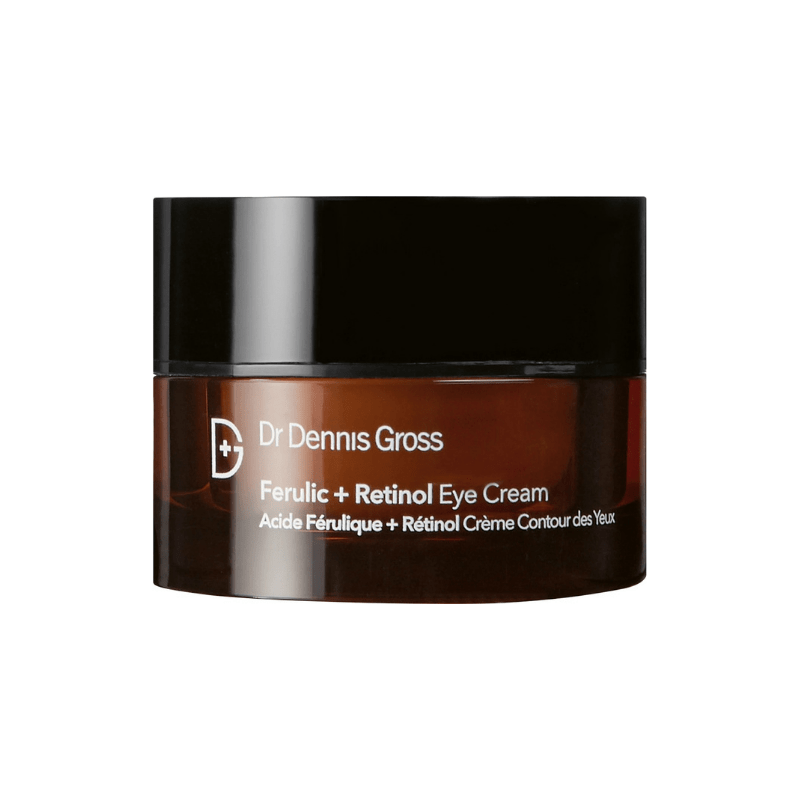
Dr. Dennis Gross Skincare Ferulic + Retinol Eye Cream
The best retinol has been shown to boost collagen production and improve hydration over time, which equals less-obvious lines and wrinkles. Dr. Dennis Gross Skincare has teamed retinol with ferulic acid and niacinamide to strengthen the skin and plump it up so that wrinkles become shallower. It’s a winning combination. Shop now
Best For… Regulars
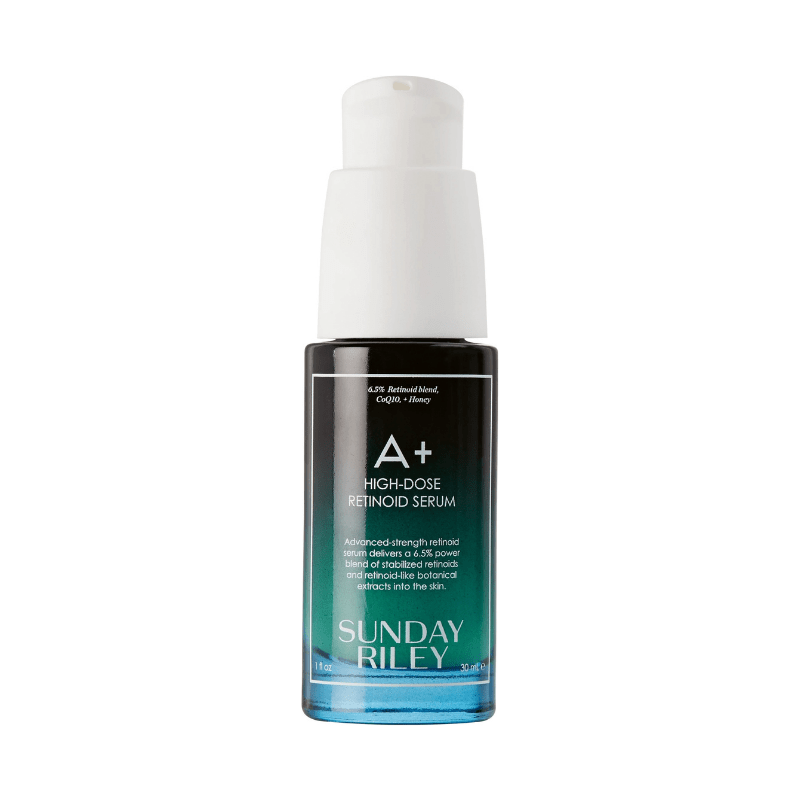
Sunday Riley A+ High-Dose Retinoid Serum
Don’t be put off by the intimidating 6.5% retinol concentration stamped across this bottle, Sunday Riley’s latest serum is pleasingly kind to skin. It actually contains a combination of 5% gentle retinol esters with 1% retinol proper and 0.5% natural, retinol-mimicking blue algae, offering just the right balance of potency and protection. Shop now
Best For… Reducing Pores
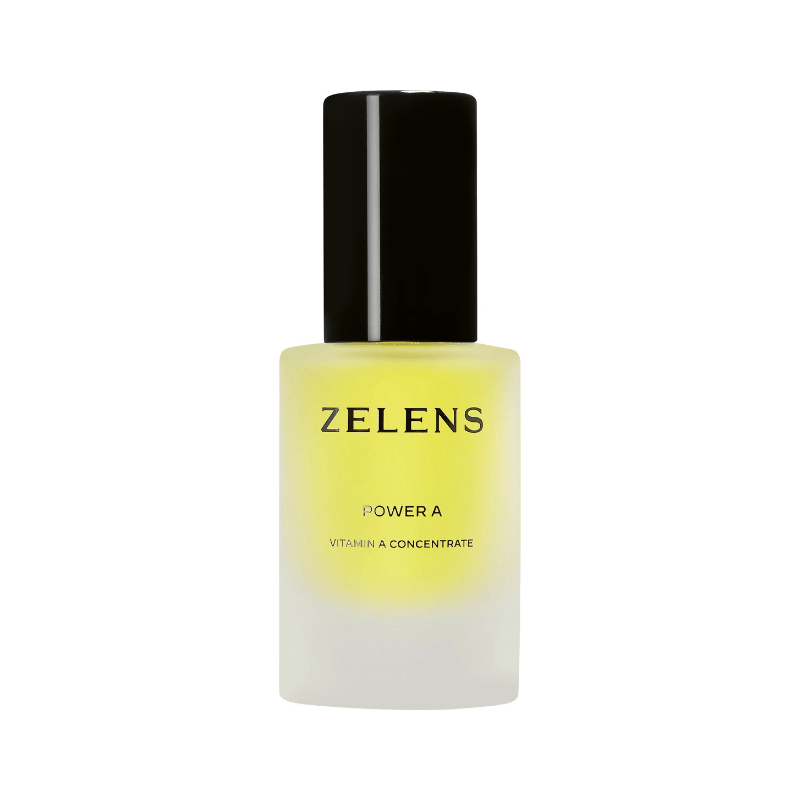
Zelens Power A Retexturising & Renewing Treatment
With encapsulated retinol and two types of retinoids, this oil formulation helps to accelerate cell renewal, keeping skin looking and feeling plump, while working to reduce the appearance of lines and wrinkles. Thanks to its impact on cell renewal, this is an excellent option if you have enlarged and visible pores, as it helps to keep them clear and compact, making them less noticeable. Shop now
Best For… Overnight Success
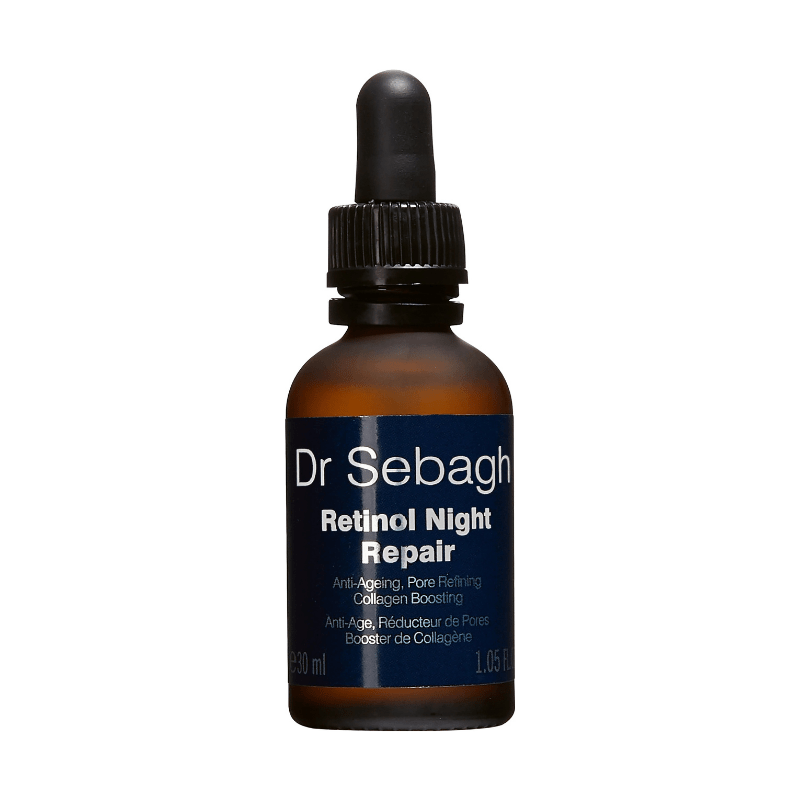
Dr. Sebagh Retinol Night Repair
Using retinol while you sleep makes sense. In fact, we now know this is the best time for skin repair, so adding this anti-ager to your night-time routine will only help boost cell turnover. What we love most about this glow enhancer is that it combines 0.3% of retinol, antioxidants and cosseting oils, such as rosehip, vitamin E and coconut oil, so you get all the benefits of retinol without the dryness. Shop now
Best For… Beginners
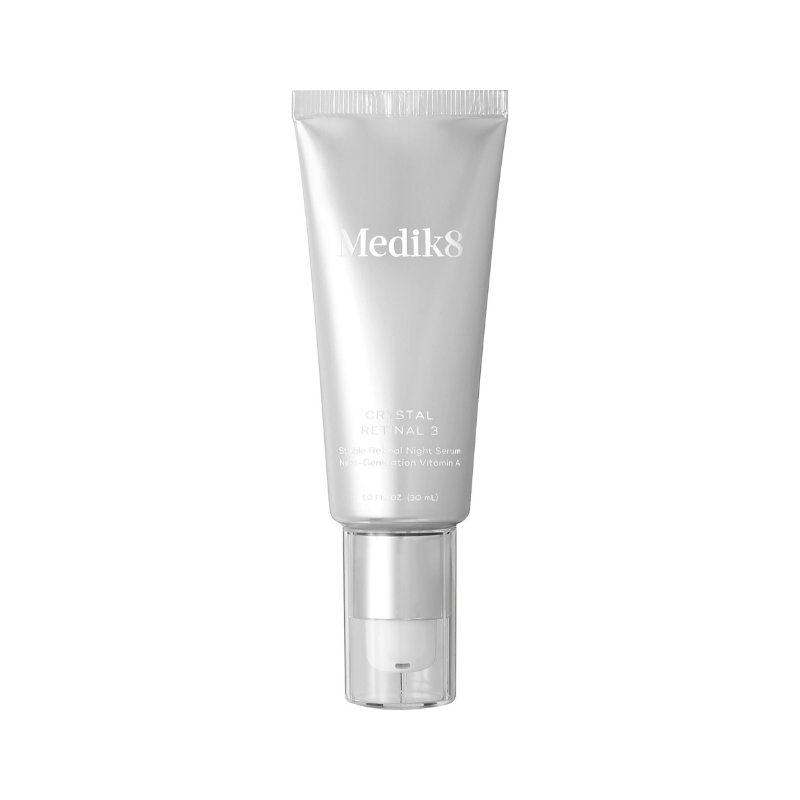
Medik8 Crystal Retinal 3 Serum
When it comes to retinol, Medik8 is the industry leader. This high-strength creamy serum contains the brand’s trademarked Crystal Retinal, which only requires one transformation within the skin to become retinoic acid. If you’re new to retinol, begin with the Crystal Retinal 3, gradually working your way up the line to 6, 10, and now the in-clinic-only 20. Shop now
Best For… Fading Pigmentation
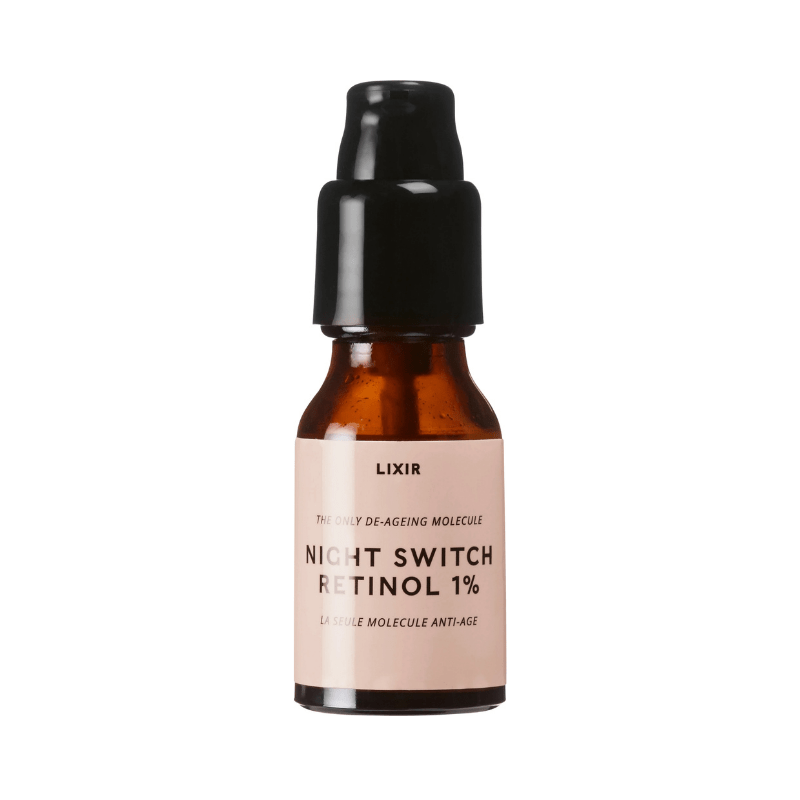
Lixirskin Night Switch Retinol 1%
Sun is good for the soul, but less so for our skin, as too much UV can result in patches of unwanted pigmentation. Add this lightweight serum to your night-time routine, using one pump for your face and a further pump for your neck and décolletage, every evening for four weeks. The retinol starts to break down excess pigmentation and helps to prevent new clusters from forming. Shop now
Best For… Targeting Ageing
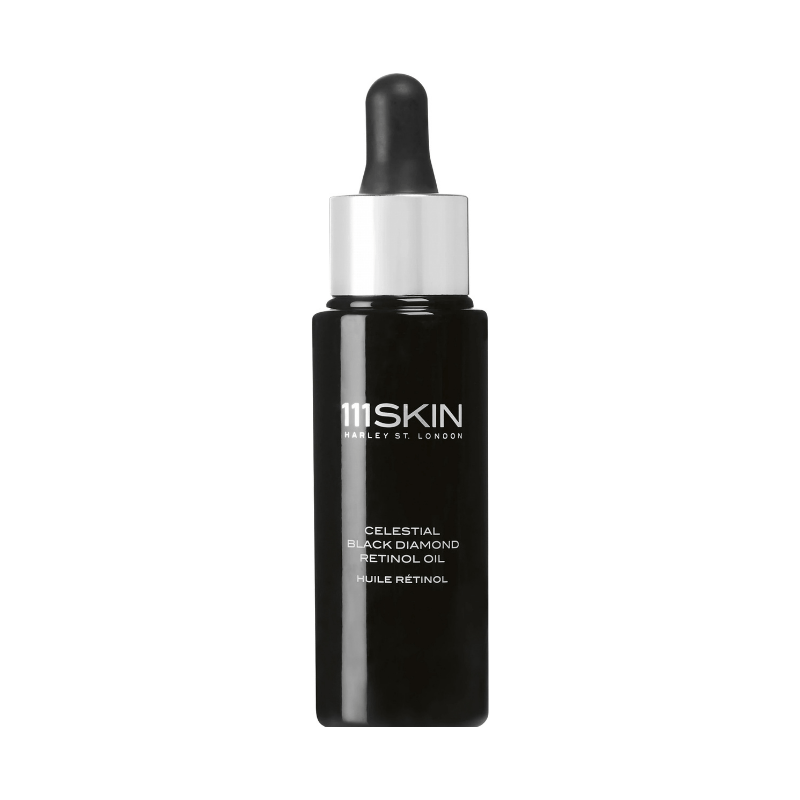
111Skin Celestial Black Diamond Retinol Oil
Effective at softening lines and wrinkles and reducing the appearance of age spots, this oil has been formulated in a way that allows it to penetrate further into the skin, giving it more of an effect. The retinol has been combined with calming vitamin E, omega-3 and omega-6, so you shouldn’t see the kind of irritation associated with a strong retinol. Shop now
Best For… Sensitive Skin
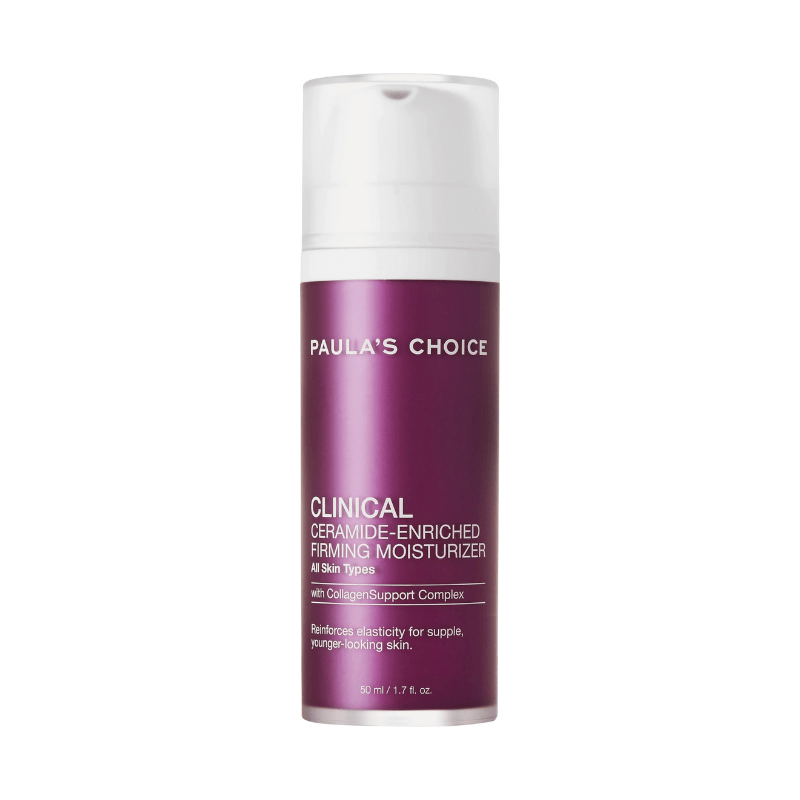
Paula’s Choice Clinical Ceramide-Enriched Moisturiser
The retinol in this clever moisturiser has been combined with ceramides, which are renowned for boosting moisture and strengthening your skin’s protective barrier. So if you have found integrating retinol a challenge in the past due to dryness and irritation, this may well be the solution. Shop now
Read Next: Niacinamide Is Beauty’s Latest Buzzword And Here’s Why
- Words by Eliza Scarborough





